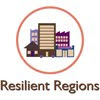As accountability and solutions to the problem continue to be fumbled from one ineffective fix to the next, local fishermen and businesses observe helplessly as the damage to their livelihoods begins to unfurl. Similar to Exxon Valdez --previously the largest oil spill in U.S. history, but surprisingly not ranked in the top 30 worldwide-- it will require years if not decades before the economic (let alone environmental and psychological) healing of this event takes shape.
So far, this disaster has a much different appearance than, say, Hurricane Katrina which was characterized more by the rampant and swift devastation that occurred and the widespread loss of life. Keeping in mind the memories of the 11 men who died on Deepwater Horizon, the gusher in the Gulf continues to be more a test on the limits of a fragile aquatic ecosystem and the chain of life dependent upon its survival.
Environmental impacts aside, long-term economic recovery for the region depends on three things:
- The extent of damage to coastal areas once the well is finally capped
- The willingness of the affected communities and inhabitants to build back again
- The ability of responsible parties (BP, Halliburton, Transocean) and the federal government to make these communities financially whole
The Department of Commerce's Economic Development Administration (EDA) appears poised to take the lead on federal recovery assistance. Last week, EDA Assistant Secretary John Fernandez gave testimony to the U.S. Senate Committee for Environment and Public works in which he stated, "While in the short term, EDA regional staff is already providing technical assistance; our focus will remain on promoting long-term economic recovery and we will continue to work closely with the affected communities long after the cleanup is complete."
Other federal agencies are sure to follow suit in their pledge to assist the affected region --which will no doubt be a welcomed sentiment to business owners and residents of the Gulf-- the real test, however, comes when the final crutch is removed, and the wings of the region are once again ready to spread and fly on their own.





